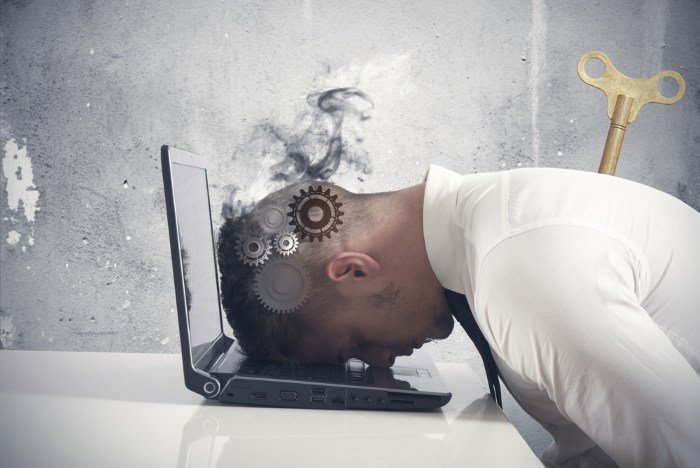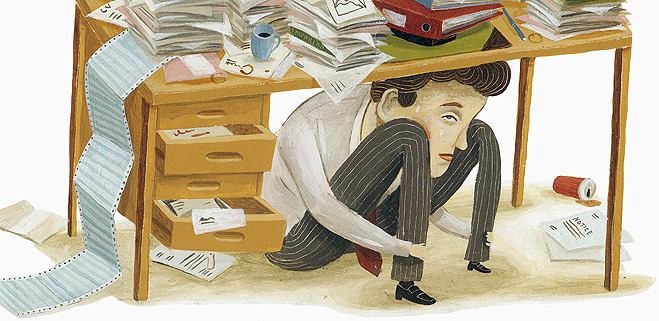
Recently, the term "professional burnout" is actively used, which is very closely related to the term "chronic fatigue". Almost every person knows firsthand about chronic fatigue and has experienced a condition when hands fall, do not want to work, the brain refuses to generate new ideas, and drowsiness, apathy and lethargy have become faithful helpers.
Professional burnout occurs as a result of frequent stress, accumulation of negative emotions, congestion at work and lack of quality rest.
Professional burnout can only be discussed if such an oppressed state appeared after months or even years of very productive and efficient work. If this feeling appeared in a short time, it means you need to say that the business that you are doing, does not bring you pleasure and it's time to find a favorite business or change professional activities.
Many people think that the main reason for professional burnout is a long and intense work. But, in this case, chronic fatigue can develop and this is provided if you do not properly organize your workflow and plan your own time. Thus, in order that you have not come professional burnout learn how to competently and wisely approach their work. To do this, you can simply follow the following recommendations.

Plan.
In order to work productively all day, you need to perform all the tasks and cases that require it. Therefore, make it a habit to plan every day. Make a list of things to do in the evening, preferably before going to bed and in a calm atmosphere, and in the morning on a fresh head, edit the list and make adjustments. The most important and urgent things to celebrate and do in the first place. Thus, you will have time to do all the necessary work, and you will have free time.
Time constraints.
All tasks and projects are performed on time. There is no need to hope that tomorrow you will have time to do everything or put it off to the last day. The feeling of an unfinished project will haunt you regularly until you finish working with it, and this will negatively affect your emotional background. You will feel inner anxiety, anxiety, irritability and as a result "earn" professional burnout.
Intervals.
No need to work on wear and tear, no breaks. Remember that this is an extra stress for the body. Rest for 15 minutes every hour. Just take a break from work, drink tea, relax or do a little exercise. Breaks are necessary for productive work, otherwise, if you work for several hours in a row, your activity will not bring good results, and the load on the body will be unjustified.
Favourite business.
If you are doing what you love, which you ignites and motivates, you can safely forget about the syndrome of professional burnout. But if the business or work does not satisfy you and do not bring anything but emotional stress, then think about changing activities. If you want to live a happy and joyful life, without disappointments and negativity, then you need to find your favorite thing.
Rest.
In order to avoid professional burnout you need to have an emotional and physical discharge. We must remember that the rest should be of high quality, that is, useful and without guilt. If you have unfinished work that constantly reminds you of yourself, sit down and do it, otherwise you will be tormented by a sense of guilt and you will not be able to unload and really relax, this will be followed by professional burnout. A good rest is the key to productive and efficient work. After a good rest you want to start with new energy and enthusiasm to perform the work and achieve new heights and results.
Among other things, remember about your health, exercise regularly or at least do morning exercises, sleep well and watch your diet.

Thanks for posting this. I find this is especially prevalent in the tech industry. I have many friends that have entirely left tech and gone into medicine or other fields unrelated to tech. It's important to find what you really love and are good at, while of course balancing the need to eat and have a roof over your head.